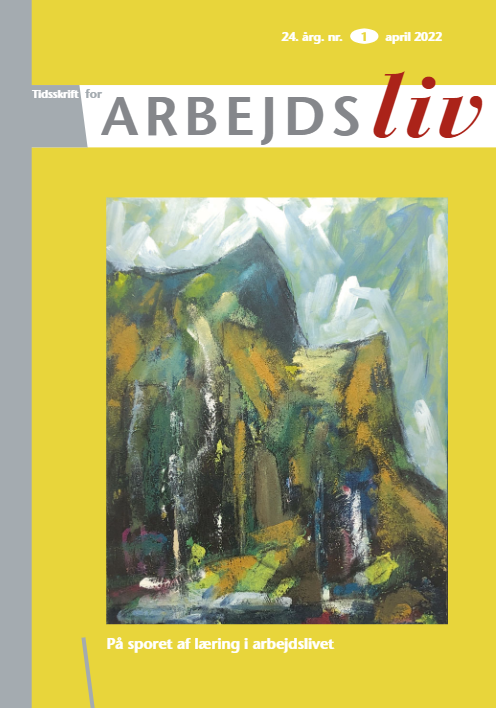Practice theoretical investigations of professional and organizational learning: a ‘tool-kit’ approach
DOI:
https://doi.org/10.7146/tfa.v24i1.132592Keywords:
praksisfællesskaber, praksisteori, læreprocesse, organisatorisk læring, læringsbanerAbstract
The article outlines an analytical framework that can accommodate the dynamics between organizational practices, work, and educational practices, as well as individuals’ learning processes in practice, and thus opens up for renewed empirical studies of organizational and professional learning processes. It unfolds three practice theoretical vantage points on organisational and professional learning processes and offers an eclectic and inclusive analytical approach to investigating these as social practices. On a background of empirical material produced through an ethnographic study of a management development program in the Danish Abstracts public sector, the possibilities and limitations of three different practice-theoretical approaches are considered. The interplay between them shows potential to add nuance to studies of professional and organizational learning processes. Firstly, learning processes are examined as professional identity formation through participation in the community of practice around the development program. Next, Schatzki’s practice-theoretical approach is used to focus on management as situated practice. This gives rise to reflections on the relationship between education and practice and offers a particularly favourable analytical view of organizational stability and change. Furthermore, a third approach that focuses on individuals’ learning paths in professional and organizational practices is considered. Here Ole Dreier's concept of person is discussed as a further development of practice theories.
Downloads
Published
How to Cite
Issue
Section
License

This work is licensed under a Creative Commons Attribution-NonCommercial 4.0 International License.
Forfattere, der publicerer deres værker via dette tidsskrift, accepterer følgende vilkår:
- Forfattere bevarer deres ophavsret og giver tidsskriftet ret til første publicering, samtidigt med at værket ét år efter publiceringen er omfattet af en Creative Commons Attribution-licens, der giver andre ret til at dele værket med en anerkendelse af værkets forfatter og første publicering i nærværende tidsskrift.
- Forfattere kan indgå flere separate kontraktlige aftaler om ikke-eksklusiv distribution af tidsskriftets publicerede version af værket (f.eks. sende det til et institutionslager eller udgive det i en bog), med en anerkendelse af værkets første publicering i nærværende tidsskrift.
- Forfattere har ret til og opfordres til at publicere deres værker online (f.eks. i institutionslagre eller på deres websted) forud for og under manuskriptprocessen, da dette kan føre til produktive udvekslinger, samt tidligere og større citater fra publicerede værker (se The Effect of Open Access).





